Charlie Parker: the 100 most inspiring musicians of all time
American alto saxophonist, composer, and bandleader, Charlie Parker (b. Aug. 29, 1920, Kansas City, Kan., U.S.—d. March 12, 1955, New York, N.Y.) was the principal stimulus of the modern jazz idiom known as bebop, and—together with Louis Armstrong and Ornette Coleman—was one of the great revolutionary geniuses in jazz.

Charlie Parker grew up in Kansas City, Missouri, during the great years of Kansas City jazz, and began playing alto saxophone when he was 13. At 14, he quit school and began performing with youth bands, and at 16 he was married— the first of his four marriages. The most significant of his early stylistic influences were tenor saxophone innovator Lester Young and the advanced swing-era alto saxophonist Buster Smith, in whose band Parker played in 1937.
Parker recorded his first solos as a member of Jay McShann’s band, with whom he toured the eastern United States in 1940–42. It was at this time that his childhood nickname “Yardbird” was shortened to “Bird.” His growing friendship with trumpeter Dizzy Gillespie led Parker to develop his new music in avant-garde jam sessions in New York’s Harlem. Bebop grew out of these experiments by Parker, Gillespie, and their adventurous colleagues; the music featured chromatic harmonies and, influenced especially by Parker, small note values and seemingly impulsive rhythms. Parker and Gillespie played in Earl Hines’s swing oriented band and Billy Eckstine’s more modern band.
In 1944, they formed their own small ensemble, the first working bebop group. The next year Parker made a series of classic recordings with Red Norvo, with Gillespie’s quintet (“Salt Peanuts” and “Shaw Nuff ”), and for his own first solo recording session (“Billie’s Bounce,” “Now’s the Time,” and “Koko”). The new music he was espousing aroused controversy, but also attracted a devoted audience. By this time Parker had been addicted to drugs for several years. While working in Los Angeles with Gillespie’s group and others, Parker collapsed in the summer of 1946, suffering from heroin and alcohol addiction, and was confined to a state mental hospital.
Following his release after six months, Parker formed his own quintet, which included trumpeter Miles Davis and drummer Max Roach. He performed regularly in New York City and on tours to major U.S. cities and abroad, played in a Gillespie concert at Carnegie Hall (1947), recorded with Machito’s Afro-Cuban band (1949–50), and toured with the popular Jazz at the Philharmonic troupe (1949). A Broadway nightclub, Birdland, was named after him, and he performed there on opening night in late 1949; Birdland became the most famous of 1950s jazz clubs.
The recordings Parker made for the Savoy and Dial labels in 1945–48 (including the “Koko” session, “Relaxin’ at Camarillo,” “Night in Tunisia,” “Embraceable You,” “Donna Lee,” “Ornithology,” and “Parker’s Mood”) document his greatest period. He had become the model for a generation of young saxophonists. His alto tone was hard and ideally expressive, with a crying edge to his highest tones and little vibrato. One of his most influential innovations was the establishment of eighth notes as the basic units of his phrases. The phrases themselves he broke into irregular lengths and shapes and applied asymmetrical accenting.
Parker’s most popular records, recorded in 1949–50, featured popular song themes and brief improvisations accompanied by a string orchestra. These recordings came at the end of a period of years when his narcotics and alcohol addictions had a less disruptive effect on his creative life. By the early 1950s, however, he had again begun to suffer from the cumulative effects of his excesses; while hospitalized for treatment of an ulcer, he was informed that he would die if he resumed drinking. He was banned from
playing in New York City nightclubs for 15 months. He missed engagements and failed to pay his accompanying musicians, and his unreliability led his booking agency to stop scheduling performances for him. Even Birdland, where he had played regularly, eventually fired him. His two year-old daughter died of pneumonia; his fourth marriage fell apart. He twice attempted suicide and again spent time in a mental hospital.
If Parker’s life was chaotic in the 1950s, he nonetheless retained his creative edge. From roughly 1950 he abandoned his quintet to perform with a succession of usually small, ad hoc jazz groups; on occasion he performed with Latin American bands, big jazz bands (including Stan Kenton’s and Woody Herman’s), or string ensembles. Recording sessions with several quartets and quintets produced such pieces as “Confirmation,” “Chi-Chi,” and “Bloomdido,” easily the equals of his best 1940s sessions. Outstanding performances that were recorded at concerts and in nightclubs also attest to his vigorous creativity during this difficult period. He wanted to study with classical composer Edgard Varèse, but, before the two could collaborate, Parker’s battle with ulcers and cirrhosis of the liver got the better of him.
While visiting his friend Baroness Nica de Koenigswarter, he was persuaded to remain at her home because of his illness; there, a week after his last engagement, he died of a heart attack. The impact of Parker’s tone and technique has already been discussed; his concepts of harmony and melody were equally influential. Rejecting the diatonic scales common to earlier jazz, Parker improvised melodies and composed themes using chromatic scales. Often he played phrases that implied added harmonies or created passages that were only distantly related to his songs’ harmonic foundations (chord changes). Yet for all the tumultuous feelings in his solos, he created flowing melodic lines. At slow tempos as well as fast, his were intense improvisations that communicated complex, often subtle emotions.
The harmonies and inflections of the blues, which he played with passion and imagination, reverberated throughout his improvisations. Altogether, Parker’s lyric art was a virtuoso music resulting from a coordination of nerve, muscle, and intellect that pressed human agility and creativity to their limits.
Jazz sheet music and transcriptions download.
Charlie Parker – The Best of Charlie Parker volume 1
Track List:
1. Cool Blues 00:00 2. No problem 3:34 3. Satan in Hight Heels 12:26 4. What’s Right for you 15:52 5. Montage 19:03 6. Shawnuff 21:15 7. You and The Night and The Music 25:42 8. Cheryl 29:02 9. Lost and Lonely 35:14 10. Sidewinder 38:51 11. Abstract Art 41:12 12. Bongo Bop 44:05 13. Easy Side Drive 48:56 14. Jazz Vendor 51:46
15. Coffee Coffee 56:37 16. Over the rainbow 1:00:06 17. Subway Inn 1:02:25 18. The Hymn 1:06:27 19. All the things you are 1:12:04 20. Communion 1:15:25 21. Lake in the woods 1:21:31 22. The Feeling of Love 1:25:01 23. Bongo Beep 1:32:14 24. From Mundy On 1:36:55 25. Pittfall 1:40:15 26. Impulse 1:43:50 27. Long Knife 1:49:16 28. Melancholy Madeline 1:51:35 29. Stop and Listen 1:54:18 30. Blues For A Stripper 1:59:05 31. Born Again 2:02:30 32. Gabriel 2:08:14
Browse in the Library:
| Artist or Composer / Score name | Cover | List of Contents |
|---|---|---|
| William Eveleth – Blues Jazz and Rock Riffs For Keyboards |
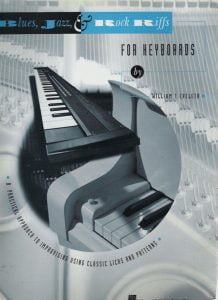 |
|
| William Gillock In Old Vienna Musescore File.mscz | ||
| William Gillock Valse Etude In Romantic Style Musescore File.mscz | ||
| William Joseph – Within (Songbook) (William Joseph) |
 |
William Joseph – Within (Songbook) (William Joseph) |
| William Robinson – My Girl | ||
| William Russo Composing Music A New Approach (ebook) |
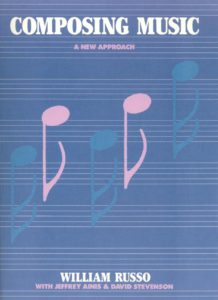 |
|
| Willie Dixon Preacher Of The Blues (2011) Mitsutoshi Inaba (Book) Biography |
 |
|
| Willie Fugal S Blues Piano transcription |
 |
|
| Willie Nelson – Always on My Mind Sheet Music |
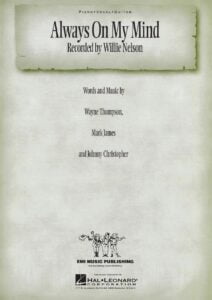 |
|
| Willie Nelson – On My Mind | ||
| Willie The Lion Smith – Finger Buster transcription |
 |
|
| Willie The Lion Smith Echo of Spring transcription |
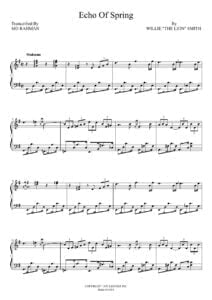 |
|
| Willow Weep For Me Words And Music By Ann Ronell 1932 Jazz Standard (Vintage sheet music) |
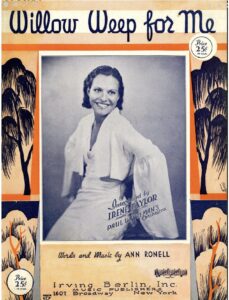 |
|
| Wim Mertens – American Minimal Music La Monte Young Terry Riley Steve Reich Philip Glass |
 |
Book La Monte Young Terry Riley Steve Reich Philip Glass |
| Wim Mertens – Close Cover | Wim Mertens – Close Cover | |
| Wim Mertens – Struggle For Pleasure | Wim Mertens – Struggle For Pleasure | |
| Wim Mertens – Time Passing |
 |
|
| Wim Mertens Humility |
 |
|
| Wim Mertens Lir |
 |
|
| Windham Hill piano sampler |
 |
Windham Hill piano sampler |
| Windy Whistle (Le Renard et l’Enfant OST) Alice Lewis | ||
| Wings (McCartney) – Greatest Hits |
 |
Wings sheet music |
| Winifred Atwell Album Of Rags No 1 Original arrangements Vintage songbook |
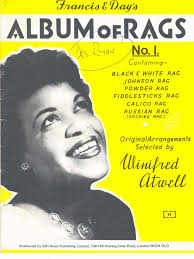 |
Winifred Atwell Album Of Rags No 1 Original arrangements Vintage songbook |
| Winifred Atwell Marguerite Monnot The Poor People Of Paris ( La Goualante Du Pauvre Jean) Piano Solo |
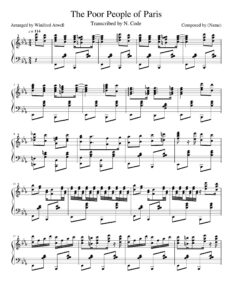 |
|
| Winnie The Pooh The Honey Tree Sheet Music (Disney) |
 |
Winnie The Pooh The Honey Tree Sheet Music (Disney) |
| Winter Sonata O.S.T. (Ryu) | ||
| Winter Wonderland Other Christmas Favorites Songbook Piano Vocal guitar Chords |
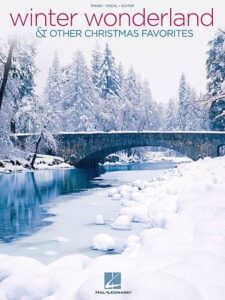 |
Winter Wonderland and Other Christmas Favorites Songbook Piano Vocal guitar Chords |
| Wish You Were Here – Pink Floyd (Musescore File).mscz | ||
| Within Temptation – Our Solemn Hour | ||
| Without you (Maria Carey) | ||
| Without You (Mariah Carey Piano Arr ) (Musescore File).mscz | ||
| Wiz Khalifa & Charlie Puth See You Again (Solo Piano) |
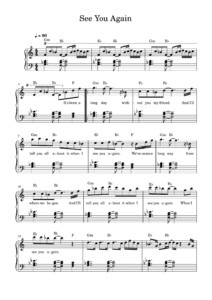 |
|
| Wolf Wagner Paraphrase Über Die Walküre |
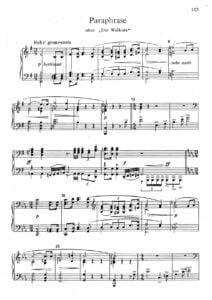 |
|
| Wolfe Richard Legit Professional Fake Book More Than 1010 Songs |
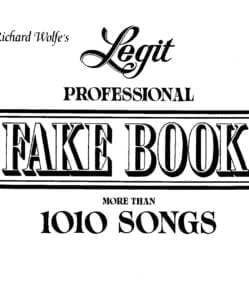 |
Wolfe Richard Legit Professional Fake Book More Than 1010 Songs |
| Wolfenzon – Stücke für Klavier | Wolfenzon – Stücke für Klavier | |
| Womack, Bobby – Midnight Mover My Autobiography The True Story of the Greatest Soul Singer in the World (Book) |
 |
|
| Woman in love (Barbra Streisand) | ||
| Women Of Pop Rock Songbook Twenty-Two Hot Hits for Easy Piano |
 |
Women Of Pop Rock Songbook Twenty-Two Hot Hits for Easy Piano |
| Wonderful Christmastime -Paul Mccartney (Wings) (Musescore File).mscz | ||
| Wonderful Life – Black (Easy Piano Solo Sheet Music) (Musescore File).mscz | ||
| Woody Allen – A propósito de nada (autobiografía)(2020) |
 |
|
| Woody Allen – Apropos of Nothing (2020) Autobiography | Woody Allen – Apropos of Nothing-Simon and Schuster (2020) Cover | |
| Woody Guthrie This Land Is Your Land (Easy and Intermediate Piano Solo) |
 |
|
| World Hits Of Jazz Standard |
 |
World Hits Of Jazz Standard |
| Wuthering Heights (Ryuichi Sakamoto) | ||
| Wynton Kelly – Autumn Leaves Solo transcription | Wynton Kelly – Autumn Leaves Solo transcription | |
| Wynton Kelly – Dark Eyes Solo Piano transcription |
 |
|
| Wynton Kelly – Dark Eyes Solo Piano Transcription (Musescore File).mscz | ||
| Wynton Kelly – Full transcriptions | Wynton Kelly – Full transcriptions | |
| Wynton Kelly – I Dig of You Solo transcription |
 |
|
| Wynton Kelly – If I should Love You Solo transcription |
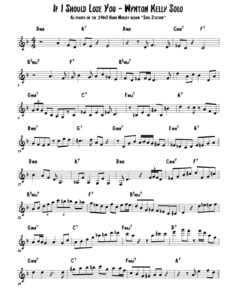 |
|
| Wynton Kelly – Jazz Piano Collection |
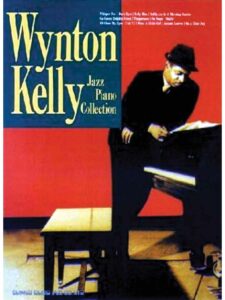 |
Wynton Kelly Piano Collection- |
| Wynton Kelly – Someday my prince will come (Piano solo) |
 |
|
| Wynton Marsalis Trumpet Genius Gourse, Leslie (Book) |
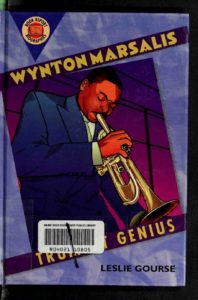 |
|
| Wynton Marsalis – Caravan (Solo) |
 |
|
| Wynton Marsalis – Darn That Dream (Solo) | Wynton Marsalis – Darn That Dream (Solo) | |
| Wynton Marsalis – Dealfayos Dillema (Solo) |
 |
|
| Wynton Marsalis – Standards (sheet music transcriptions) |
 |
Wynton Marsales – Standards (sheet music transcriptions) |
| Wynton Marsalis In The Court Of King Oliver (Trumpet and rhythm section) |
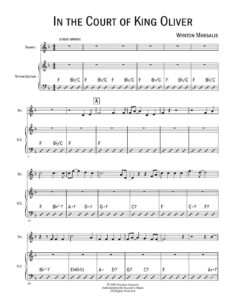 |
|
| Wynton Marsalis Omnibook For B Flat Instruments Transcribed exactly from his recorded solos |
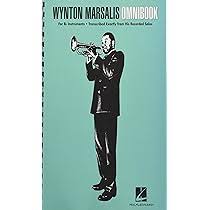 |
Wynton Marsalis Omnibook For B Flat Instruments Transcribed exactly from his recorded solos |
| Wynton Marsalis Struttin’ With Some Barbeque (Live) Wynton Marsalis’ Trumpet Solo |
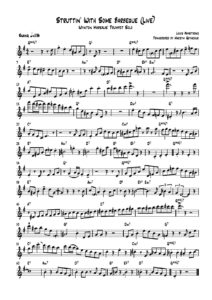 |
|
| Xenoblade Chronicles 2 Loneliness Kenji Hiramatsu | Xenoblade Chronicles Opening Theme Game sheet music | |
| Xenoblade Chronicles Opening Theme Game sheet music Yoko Shimomura |
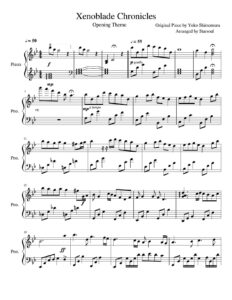 |
|
| Yamaha E443 Songbook digital keyboard PSR-E443 |
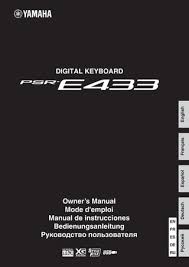 |
|
| Yamaha Keyboard Songbook |
 |
Yamaha Keyboard Songbook |
| Yamaha Keyboard Songbook Song-Buch |
 |
|
| Yamaha PSR E373 YPT-370 PSR-EW310 Song book |
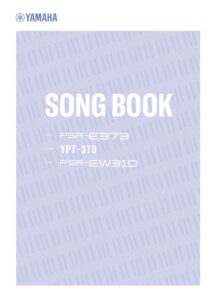 |
|
| Yamaha Song Book |
 |
Yamaha Song Book |
| Yamaha Song book |
 |
Yamaha Songbook |
| Yamaha Songbook |
 |
Yamaha-Songbook |
| Yamaha songbook 50 Piano Greats for the piano (Yamaha collection) |
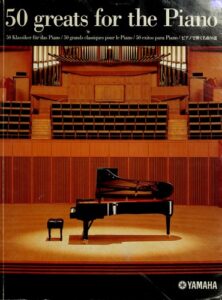 |
50 Piano Greats for the piano (Yamaha collection) |
| Yamaha Songbook Contemporary Vol. 1 |
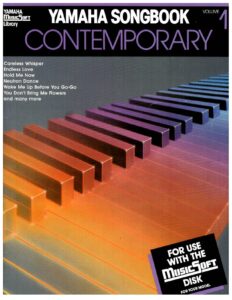 |
Yamaha Songbook Contemporary Vol. 1 |
| Yana Bobalik Mysterious Music Я.Бобалік Songbook |
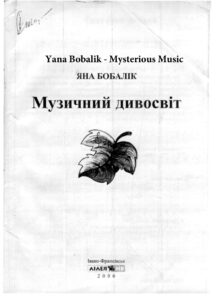 |
|
| Yana Bobalik Secret Music From Mysterious Music Я.Бобалік Таемна Музыка |
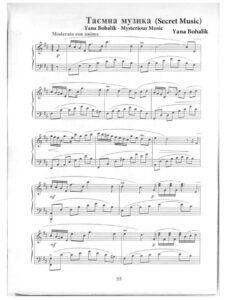 |
|
| Yann Tiersen Rue des Cascades (sheet music) | yann tiersen cascades sheet-music | |
| Yann Tiersen Mother’s Journey |
 |
|
| Yann Tiersen – Tabarly Sheet Music |
 |
|
| Yann Tiersen – Comptine Dun Autre ete | ||
| Yann Tiersen – La Dispute – Amelie Poulain | ||
| Yann Tiersen – La Valse d’Amelie Poulain | Yann Tiersen – La Valse Damelie | |
| Yann Tiersen – Le moulin – Amelie Poulain | Le Moulin – Amelie Poulain | |
| Yann Tiersen – Six pièces pour piano – Volume 2 – Amélie Poulain |
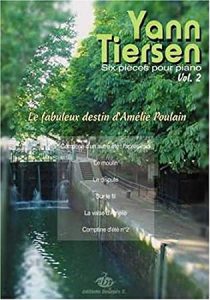 |
Yann Tiersen – Six pieces pour piano – Volume 2 – Music Sheet |
| Yann Tiersen – Summer 78 | ||
| Yann Tiersen – Sur Le Fil |
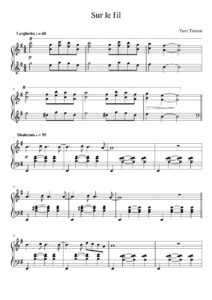 |
|
| Yann Tiersen – Pièces pour piano vol 1 et 2 + divers |
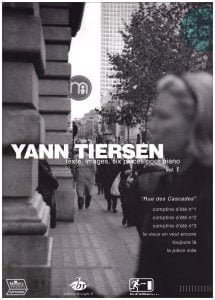 |
Yann Tiersen – pièces pour piano vol 1 et 2 + divers  |
| Yann Tiersen Eusa 2015 Songbook |
 |
|
| Yann Tiersen J’Y Suis Jamais Alle piano solo (Amélie) |
 |
|
| Yann Tiersen Onze Pièces Pour Piano |
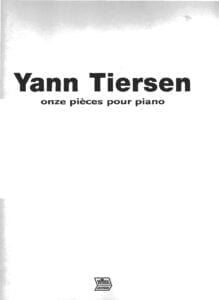 |
Yann Tiersen Onze Pièces Pour Piano |
| Yann Tiersen Partitions intégrales Piano Works 1993-2004 | Yann Tiersen Partitions intégrales Piano Works 1993-2004 | |
| Yann Tiersen Tabarly Complete Book For Piano |
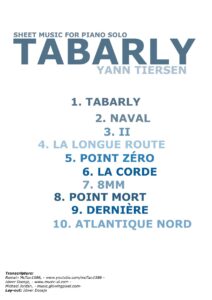 |
|
| Yanni In My Time (Piano Solos) Sheet Music |
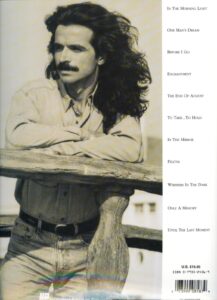 |
Yanni In my time piano solos |
| Yanni One Man’s Dream |
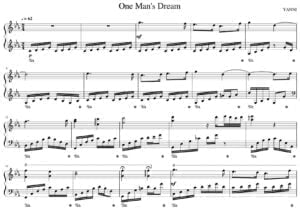 |
|
| Yanni – Per Piano (Piano book) |
 |
Yanni – Per Piano |
| Yanni – In The Morning Light | ||
| Yanni – Nostalgia | ||
| Yanni – One Man’s Dream (Musescore File).mscz | ||
| Yanni -The Best of |
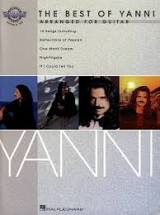 |
 |
| Yanni Ethnicity Book |
 |
Yanni Ethnicity Book |
| Yaron Herman – Hallelujah (Leonard Cohen) transcription |
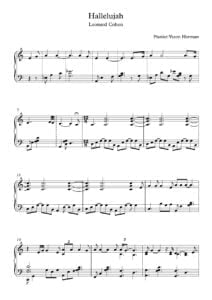 |
|
| Yashal (Elisa) | ||
| Yasuharu Takanashi – Naruto Shippuden OST – Loneliness |
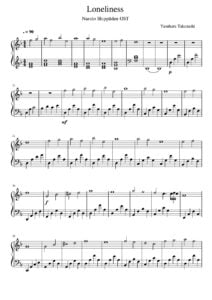 |
|
| Yedidia, Ronn Piano Sonata No 3 outcries (manuscrit) |
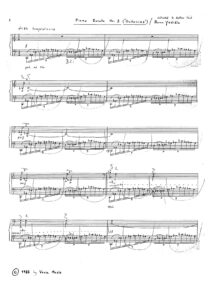 |
|
| Yehezkel Raz Ballerina Piano Solo sheet music |
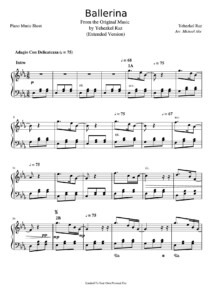 |
|
| YES Fragile |
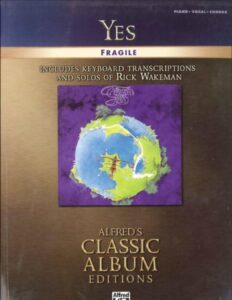 |
YES Fragile |
| YES – Complete Deluxe Edition |
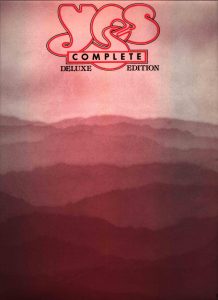 |
YES – Complete Deluxe Edition |
| Yes Close To The Edge The Story Of Yes (Book) |
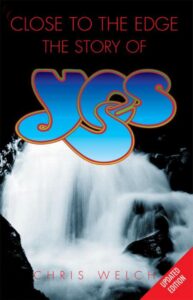 |
|
| Yes The Best Of Guitar Songbook with TABs |
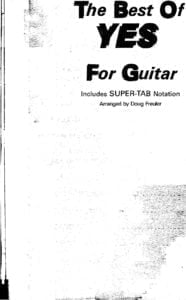 |
Yes The Best Of Guitar Songbook |
| Yesterday Piano Cello – Piano Sheet Music – Paul McCartney |
 |
|
| Yesterday Piano vocal guitar Songbook Featuring Music From the OST |
 |
|
| Yesterday The Beatles For Jazz Piano (Musescore File).mscz | ||
| Yesterday when I was young (Charles Aznavour) | ||
| Yimkin Law ( Et maintenant on va où OST) Racha Rizk | ||
| Yiruma – 27 May | ||
| Yiruma – Destiny Of Love | ||
| Yiruma – Dream | ||
| Yiruma – Dream A Little Dream Of Me | Yiruma – Dream A Little Dream Of Me | |
| Yiruma – Falling | ||
| Yiruma – First Love – River Flows In You | Yiruma – First Love – River Flows In You | |
| Yiruma – Gabriel | ||
| Yiruma – Kiss the Rain | Yiruma Kiss the rain |
